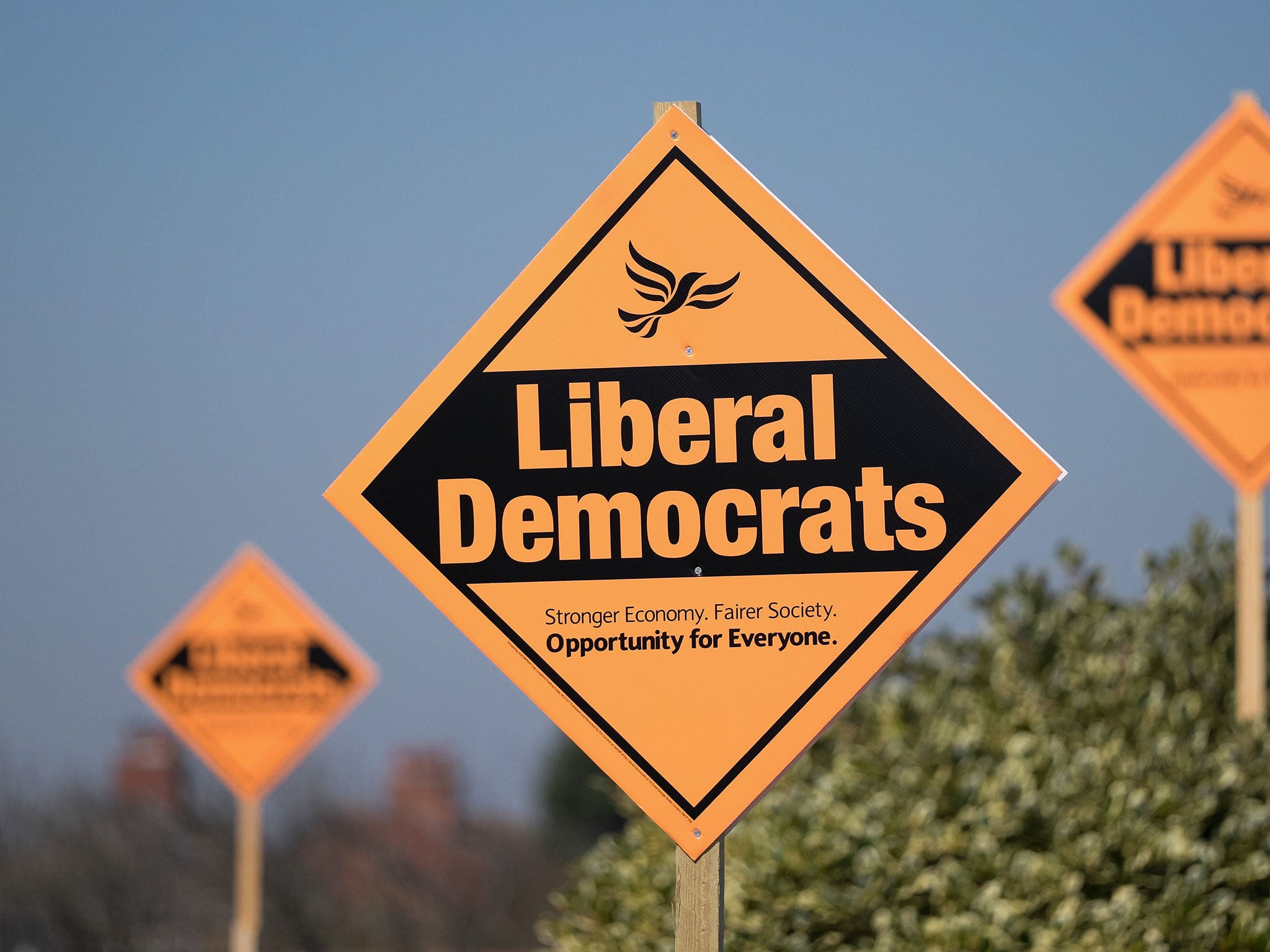Labour’s mission is played out – the door is open for the Lib Dems
The party the centre-left needs today is one founded on Liberal values

Your support helps us to tell the story
From reproductive rights to climate change to Big Tech, The Independent is on the ground when the story is developing. Whether it's investigating the financials of Elon Musk's pro-Trump PAC or producing our latest documentary, 'The A Word', which shines a light on the American women fighting for reproductive rights, we know how important it is to parse out the facts from the messaging.
At such a critical moment in US history, we need reporters on the ground. Your donation allows us to keep sending journalists to speak to both sides of the story.
The Independent is trusted by Americans across the entire political spectrum. And unlike many other quality news outlets, we choose not to lock Americans out of our reporting and analysis with paywalls. We believe quality journalism should be available to everyone, paid for by those who can afford it.
Your support makes all the difference.In the months leading up to May’s general election, pundits claimed we were entering a new era of multi-party politics. In the end, it came to nothing. Though the public is still less willing to vote exclusively for the two main parties, with the exception of the Scottish National Party the political challengers are still grossly under-represented in our democratic system. We are stuck with first-past-the-post, which will continue to favour the Conservatives.
The problem for non-Conservatives is still, as it has always been, to create a single, moderate, electable progressive party able to appeal to the left-leaning half of the electorate. For most of the last century, that was what Labour aspired to be. Yet, despite their devastating performance in May, this is what the Liberal Democrats have a better claim to today.
Labour was founded in 1900 as an uneasy coalition of two distinct strands, the trade unions on the one hand and socialism on the other. But from the 1920s to the 1970s, the numbers, muscle and money of the unions created a powerful election-winning machine (with two high peaks in 1945 and 1966) which went a long way towards achieving a more equal society. After the electorally suicidal lurch to the far left after 1979, Neil Kinnock, John Smith and Tony Blair managed to rebuild a party capable of winning again in 1997 – but they did so only by abjuring socialism and progressively weakening the link with the unions.
The two traditions which historically supported Labour are both exhausted. Today, the unions represent only a minority of the workforce concentrated in the dwindling public sector. Meanwhile, belief in socialism as traditionally understood from Attlee to Wilson – nationalisation and economic planning, universal public services supported by redistributive taxation – is almost totally discredited and forgotten. The surge in support for Jeremy Corbyn which so embarrasses the mainstream candidates has revealed a deep hankering among party members to take Labour back to its socialist roots. Shorn of socialism and no longer the army of the organised working class, Labour post-Blair no longer knows what it is for.
The rise and decline of the Labour Party coincided almost exactly with the start and end of the 20th century; its historical mission is now played out. The Liberal Democrats, on the other hand, are now the inheritors of a Liberal tradition going back to Gladstone which is still as relevant as ever, and consists of four distinctive strands: constitutional reform (which in modern terms means electoral reform, reform of the House of Lords, and devolution); civil liberties (that is, individual liberty, free speech and minority rights); anti-imperialism (leading to suspicion of foreign wars); and improving the condition of the people (reducing poverty, promoting greater equality and social mobility). To these historical goals can be added two more recent concerns: commitment to Britain’s place in Europe and a determination to tackle climate change.
Historically, Labour has never been very interested in constitutional reform or minority rights; its record on Europe and the environment is patchy at best, and Iraq fatally damaged its anti-war credentials. Meanwhile, its efforts at abolishing poverty and improving the lot of working people – its real raison d’être – have had only limited success.
Socialism proved to be a less efficient creator of wealth than the free market, so that from Macmillan to Thatcher the Tories consistently won the economic argument; but Thatcherism has brought only greater inequality and social injustice. Inequality remains the most urgent problem needing to be addressed today; but it is one to which Labour has no exclusive answer.
The two central achievements that Labour harks back to as representing the implementation of its values in practice – the NHS and the welfare state, and full employment maintained by a mixed and managed economy – were actually the achievement of two paid-up Liberals, Beveridge and Keynes, building on the foundations laid by the Liberal government of Asquith and Lloyd George before 1914.
This all poses a big problem for Labour. No party can thrive in denial of its own history. The party the centre-left needs today, to represent the whole left-leaning half of the population by opposing the brutal, unaccountable power of global capitalism, is one founded on Liberal values. With Labour in terminal disarray a huge opportunity presents itself for the Liberal Democrats, despite their setback in May, to reassert the timelessness of Liberalism and consign Labour to history.
Join our commenting forum
Join thought-provoking conversations, follow other Independent readers and see their replies
Comments